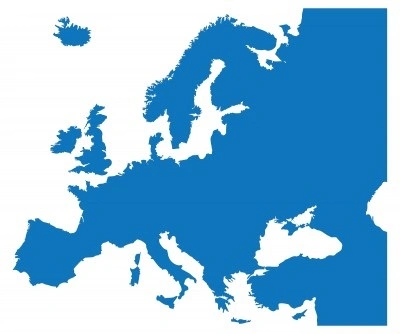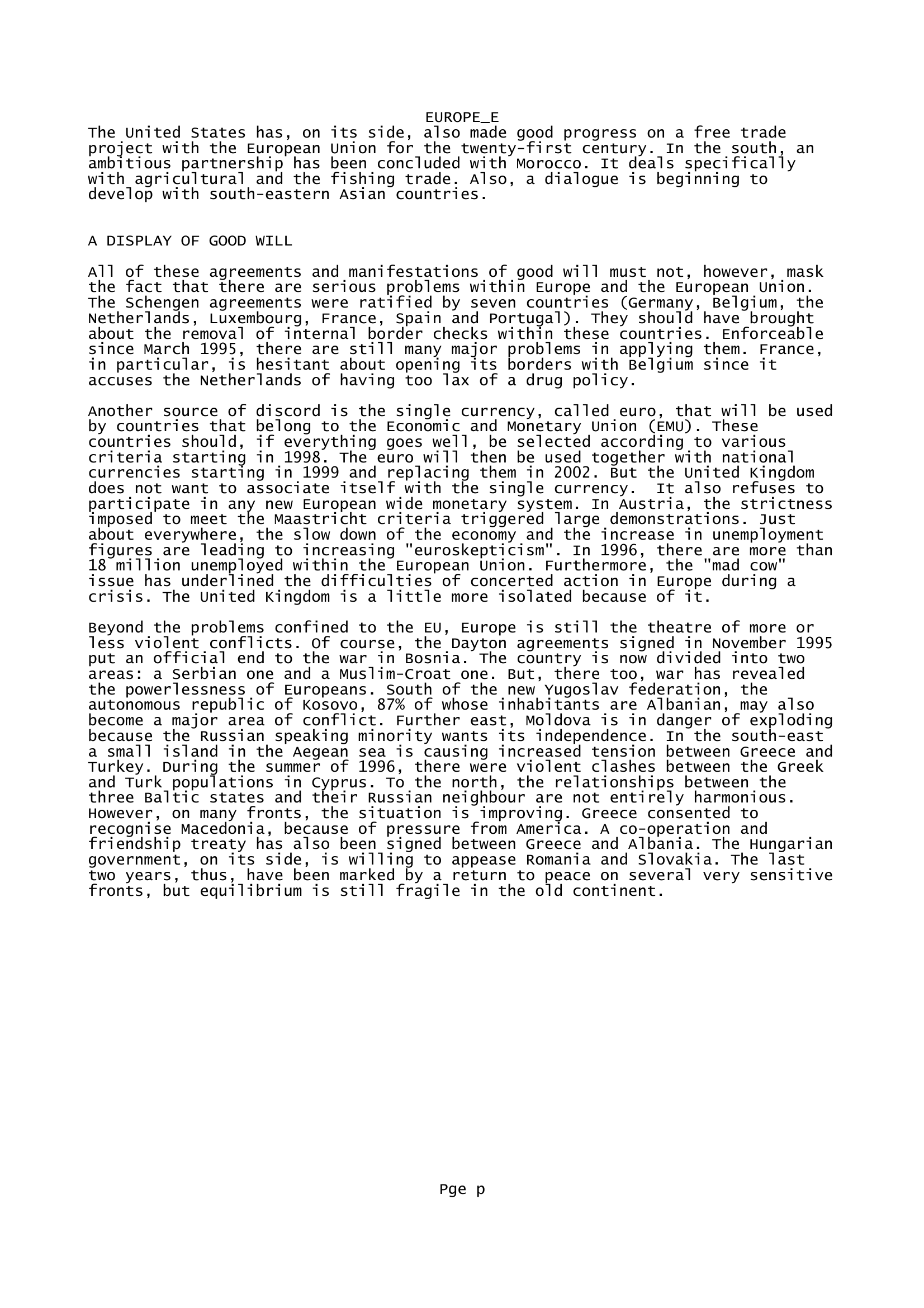EUROPE_E THE MOST RECENT NEWS ABOUT EUROPE The European Union is preparing to expand.
Publié le 05/04/2015

Extrait du document


«
EUROPE_E The United States has, on its side, also made good progress on a free tradeproject with the European Union for the twenty-first century.
In the south, anambitious partnership has been concluded with Morocco.
It deals specificallywith agricultural and the fishing trade.
Also, a dialogue is beginning todevelop with south-eastern Asian countries.
A DISPLAY OF GOOD WILL
All of these agreements and manifestations of good will must not, however, maskthe fact that there are serious problems within Europe and the European Union.The Schengen agreements were ratified by seven countries (Germany, Belgium, theNetherlands, Luxembourg, France, Spain and Portugal).
They should have broughtabout the removal of internal border checks within these countries.
Enforceablesince March 1995, there are still many major problems in applying them.
France,in particular, is hesitant about opening its borders with Belgium since itaccuses the Netherlands of having too lax of a drug policy.
Another source of discord is the single currency, called euro, that will be usedby countries that belong to the Economic and Monetary Union (EMU).
Thesecountries should, if everything goes well, be selected according to variouscriteria starting in 1998.
The euro will then be used together with nationalcurrencies starting in 1999 and replacing them in 2002.
But the United Kingdomdoes not want to associate itself with the single currency.
It also refuses toparticipate in any new European wide monetary system.
In Austria, the strictnessimposed to meet the Maastricht criteria triggered large demonstrations.
Justabout everywhere, the slow down of the economy and the increase in unemploymentfigures are leading to increasing "euroskepticism".
In 1996, there are more than18 million unemployed within the European Union.
Furthermore, the "mad cow"issue has underlined the difficulties of concerted action in Europe during acrisis.
The United Kingdom is a little more isolated because of it.
Beyond the problems confined to the EU, Europe is still the theatre of more orless violent conflicts.
Of course, the Dayton agreements signed in November 1995put an official end to the war in Bosnia.
The country is now divided into twoareas: a Serbian one and a Muslim-Croat one.
But, there too, war has revealedthe powerlessness of Europeans.
South of the new Yugoslav federation, theautonomous republic of Kosovo, 87% of whose inhabitants are Albanian, may alsobecome a major area of conflict.
Further east, Moldova is in danger of explodingbecause the Russian speaking minority wants its independence.
In the south-easta small island in the Aegean sea is causing increased tension between Greece andTurkey.
During the summer of 1996, there were violent clashes between the Greekand Turk populations in Cyprus.
To the north, the relationships between thethree Baltic states and their Russian neighbour are not entirely harmonious.However, on many fronts, the situation is improving.
Greece consented torecognise Macedonia, because of pressure from America.
A co-operation andfriendship treaty has also been signed between Greece and Albania.
The Hungariangovernment, on its side, is willing to appease Romania and Slovakia.
The lasttwo years, thus, have been marked by a return to peace on several very sensitivefronts, but equilibrium is still fragile in the old continent.
Pge p.
»
↓↓↓ APERÇU DU DOCUMENT ↓↓↓
Liens utiles
- A member of the European Union since 1986, it is one of the poorest countries in Western Europe, but rapid changes and strong growth are ensuring that Portugal is gradually catching up.
- A member of the European Union, the Netherlands are the leading country for producing and exporting natural gas in Europe.
- the origins and the history of the european union
- On the Waterfront On the Waterfront, motion picture about a down-and-out boxer who finds courage to stand up to a corrupt labor union through the friendship of a woman and a priest.
- A member of the European Union, the Grand Duchy of Luxembourg is one of the Union's six founder countries.

































